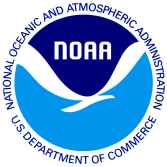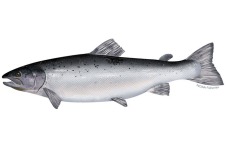While the threats to our oceans and fisheries are clear and defined, solutions to these problems are not always so clear cut. Progress has been made, however, and many conservation efforts have been underway for decades. Both governmental and private organizations have been working tirelessly, in the U.S. and across the world, to combat the problems. People are coming together to try and bring our fish back. The National  Oceanic and Atmospheric Association (NOAA), has taken it upon itself to do just that. “NOAA Fisheries tracks 473 fish stocks managed by 46 fishery management plans. We have rebuilt 40 stocks since 2000 as a result of our fishery management process. Overfishing and overfished numbers remained near all-time lows in 2015” (NOAA). Through compliance with government mandates, careful scientific calculations, and the latest equipment the organization has managed to put U.S. fisheries back on track to sustainability and productivity. One of the extremely important projects that NOAA has been working on has been to save the Atlantic Salmon stock. This type of salmon used to found in rivers and waterways all across New England. When European settlers arrived, this all changed. Dams were built, gradually reducing their zone of habitat to a few waterways in Maine. Commercial fishing also began to take place. With the paths to their breeding grounds cut off, their numbers began to dwindle.
Oceanic and Atmospheric Association (NOAA), has taken it upon itself to do just that. “NOAA Fisheries tracks 473 fish stocks managed by 46 fishery management plans. We have rebuilt 40 stocks since 2000 as a result of our fishery management process. Overfishing and overfished numbers remained near all-time lows in 2015” (NOAA). Through compliance with government mandates, careful scientific calculations, and the latest equipment the organization has managed to put U.S. fisheries back on track to sustainability and productivity. One of the extremely important projects that NOAA has been working on has been to save the Atlantic Salmon stock. This type of salmon used to found in rivers and waterways all across New England. When European settlers arrived, this all changed. Dams were built, gradually reducing their zone of habitat to a few waterways in Maine. Commercial fishing also began to take place. With the paths to their breeding grounds cut off, their numbers began to dwindle.

In 2017 only 2,000 salmon returned from their yearly migration to the ocean, a mere 1% of historic numbers. NOAA has marked the Penobscot for priority status and has been working to clear dams and blockages from its banks. They have also developed hatcheries to breed salmon and release them into the river in an effort to increase their numbers. While fishing for the endangered fish has been made illegal in U.S. waters, international waters are still fair game. NOAA is currently trying to fix this.
In East Machias, Maine, a similar project is taking place with aims to try and restore the salmon population.
“Supported by Icelandic funding, Scottish experience and know-how, and local initiative, the East Machias project aims to rescue an iconic fish that has lately seemed destined to be extinguished from Maine in the face of past pollution and dam building, present-day overfishing in Greenland, and the ongoing warming of the climate in New England, which is at the southernmost part of their range” (Woodard).
The Downeast Salmon Federation, the leader of the project, was approached by an organization based out of Reykjavik, Iceland. The Icelandic organization, the North Atlantic Salmon Organization, had been searching for a location to try out Peter Gray’s successful salmon story on the Tyne River. A Scottish expert in the field, Peter Gray, was  able to reinvigorate the salmon population of the River Tyne. He used methods in constructing his hatcheries that attempted to mimic the salmon’s natural habitat down to a tee. Methods such as using the same water from the river, providing natural features, and darkening the containment areas. Clear containment areas, because the fish’s skin adapts to their surrounding, were seen to make the fish lighter in color. This made fish released back into the river easier for predators to spot. Iceland has a vested interest in seeing the return of Atlantic Salmon just as much as fishermen off the Gulf of Maine do. Fishing is a vital part of both of their economies. Concern over the recent mandates in Greenland over the species has encouraged their outreach to Maine. Greenland recently allowed the reopening of its commercial salmon industry, adding only yet another threat to the species’ continued existence.
able to reinvigorate the salmon population of the River Tyne. He used methods in constructing his hatcheries that attempted to mimic the salmon’s natural habitat down to a tee. Methods such as using the same water from the river, providing natural features, and darkening the containment areas. Clear containment areas, because the fish’s skin adapts to their surrounding, were seen to make the fish lighter in color. This made fish released back into the river easier for predators to spot. Iceland has a vested interest in seeing the return of Atlantic Salmon just as much as fishermen off the Gulf of Maine do. Fishing is a vital part of both of their economies. Concern over the recent mandates in Greenland over the species has encouraged their outreach to Maine. Greenland recently allowed the reopening of its commercial salmon industry, adding only yet another threat to the species’ continued existence.
Besides man-made threats to the oceans and their inhabitants, the creeping menace of climate change has also been having an effect on them. The Gulf of Maine seems to be particularly at risk. “The gulf, where fishermen have for centuries sought lobster, cod and other species that thrived in its cold waters, is now warming faster than 99 percent of the world’s oceans, scientists have said” (Whittle and Matheson). This is most likely a greater issue than human interference in the oceans, but it is one with no clear solution as of yet. Besides hitting the Gulf of Maine the hardest, climate change also seems to effect cod more drastically than any other species. “The challenges climate change have brought to commercial fishing are perhaps most noticeable in New England’s cod fishery, which has dwindled from more than 1,200 boats in the 1980s to only a few dozen today. In that time, the catch of cod has plummeted from more than 117 million pounds in 1980 to just over 5 million in 2014” (Whittle and Matheson). This is a problem that scientists the world over have been working to fix for decades. No clear solution has come up as of yet, but there is always hope for a better tomorrow.
From global warming to over-fishing to new technologies wreaking havoc, our oceans and fisheries seem to be beset by challenges on all sides. Fish stocks have dwindled, rising ocean temperatures and human impediments have made it difficult for fish to breed, fishermen are a dying breed; it seems the end of the fishing industry is nigh. Through all of these seemingly apocalyptic issues, however, shine rays of hope. NOAA and other organizations have stepped up to bring fish stocks back. Government mandates for commercial fishing have been set by most developed nations. A push for more traditional methods to make a comeback is even occurring in some parts of the world. If we can continue work through these issues together, a brighter future for our oceans and fisheries can most definitely be ensured.
Sources:
Woodard, Colin. “In Down East Hamlet, an Effort to Turn the Tide for Atlantic Salmon.” Portland Press Herald, 06 Dec, 2015, pp. n/a, SIRS Issues Researcher, https://sks.sirs.com.
Fisheries, NOAA. “Species in the Spotlight: Atlantic Salmon.” NOAA Fisheries. NOAA, 07 Dec. 2015. Web. 09 July 2017.
Whittle, Patrick, and Kathy Matheson. “Fading Fishermen: A Historic Industry Faces a Warming World.” Concord Monitor, 27 Jun, 2016, pp. n/a, SIRS Issues Researcher, https://sks.sirs.com.
Paulson, Amanda. “Can the World Come Together in Defense of Oceans?” Christian Science Monitor, 05 Jun, 2017, pp. n/a, SIRS Issues Researcher, https://sks.sirs.com.
The Gulf of Maine | Gulf of Maine Council on the Marine Environment. N.p., n.d. Web. 09 July 2017.